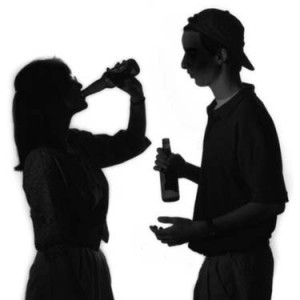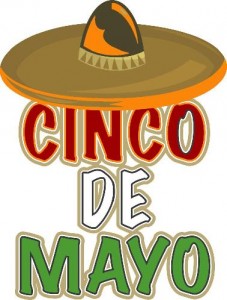Memorial Day Weekend 2015 – Aftermess
Thursday, May 28th, 2015 This past Memorial Day weekend, Wilmington officials reported numerous traffic violations and accidents. According to news sources, there were approximately six deadly crashed that occurred throughout the state, one of which tragically took the lives of a newborn and toddler in Pender County. In all, seven people lost their lives in these accidents over the weekend. Half of these incidents occurred in the Cape Fear region. The number of fatal crashes has reduced since last year, however, one life lost is still one too many. Always wear your seatbelt and be alert and aware of your surroundings.
This past Memorial Day weekend, Wilmington officials reported numerous traffic violations and accidents. According to news sources, there were approximately six deadly crashed that occurred throughout the state, one of which tragically took the lives of a newborn and toddler in Pender County. In all, seven people lost their lives in these accidents over the weekend. Half of these incidents occurred in the Cape Fear region. The number of fatal crashes has reduced since last year, however, one life lost is still one too many. Always wear your seatbelt and be alert and aware of your surroundings.
Efforts to improve motor vehicle safety were noted over the weekend as well. State troopers reported close monitoring of speed in Brunswick County, issuing around one dozen tickets for speeding. Highway patrol reported giving an additional 160 citations in the Cape Fear region this weekend alone.
Last Saturday night, the Wilmington Police Department hosted a checkpoint at the intersection of Market Street and 15th Street, leading to over 70 charges. Out of these charges, 10 were DWI related.
If you or someone you know is in need of representation for a traffic offense, please give Attorney David Collins a call. With over 20 years of experience, we are able to help you in most matters! Call us at 910-793-9000.
By Brittany L. Bryant, Legal Assistant at Collins Law Firm

 The aroma of hotdogs and hamburgers is soon going to fill the air! Memorial Day is upon us! Most know this holiday as one filled with family cookouts and time spent at the beach. Wilmington natives avoid traffic, as they know this city is a premier destination for those all over the state. For tourist’s driving to the local area, it is advised to leave home early in order to help avoid traffic that occurs on the highways. This year, the NCDOT is halting construction projects on major highways in an effort to help its citizens reach their holiday destinations safely and without strife. According to the NCDOT website, NCDOT will put on hold most construction projects along interstate, N.C. and U.S. routes from 4 p.m. on Friday, May 22, until 9 a.m. on Tuesday, May 26, with these exceptions:
The aroma of hotdogs and hamburgers is soon going to fill the air! Memorial Day is upon us! Most know this holiday as one filled with family cookouts and time spent at the beach. Wilmington natives avoid traffic, as they know this city is a premier destination for those all over the state. For tourist’s driving to the local area, it is advised to leave home early in order to help avoid traffic that occurs on the highways. This year, the NCDOT is halting construction projects on major highways in an effort to help its citizens reach their holiday destinations safely and without strife. According to the NCDOT website, NCDOT will put on hold most construction projects along interstate, N.C. and U.S. routes from 4 p.m. on Friday, May 22, until 9 a.m. on Tuesday, May 26, with these exceptions: On Tuesday night, May 12, 2015, an Amtrak train traveling from Washington, DC to New York City derailed in the Port Richmond neighborhood of northeast Philadelphia, leaving at least seven people dead and more than 200 injured. At 9:30p.m, during this seemingly normal commute, Amtrak Northeast Regional Train 188 approached a bend, traveling at a speed of 106 MPH, more than twice the speed limit (of 50 MPH) in this area of the track.
On Tuesday night, May 12, 2015, an Amtrak train traveling from Washington, DC to New York City derailed in the Port Richmond neighborhood of northeast Philadelphia, leaving at least seven people dead and more than 200 injured. At 9:30p.m, during this seemingly normal commute, Amtrak Northeast Regional Train 188 approached a bend, traveling at a speed of 106 MPH, more than twice the speed limit (of 50 MPH) in this area of the track. There are many risks associated with the liberal consumption of alcohol. The most significant risk is when a person hazards a motor vehicle crash due to having too high a concentration of alcohol in their system while driving. Since 1993, it has been illegal to drive with a BAC of 0.08% or higher in the state of North Carolina. Even so, almost 2,000 people under 21 are killed yearly in car crashes in which alcohol was involved .
There are many risks associated with the liberal consumption of alcohol. The most significant risk is when a person hazards a motor vehicle crash due to having too high a concentration of alcohol in their system while driving. Since 1993, it has been illegal to drive with a BAC of 0.08% or higher in the state of North Carolina. Even so, almost 2,000 people under 21 are killed yearly in car crashes in which alcohol was involved .